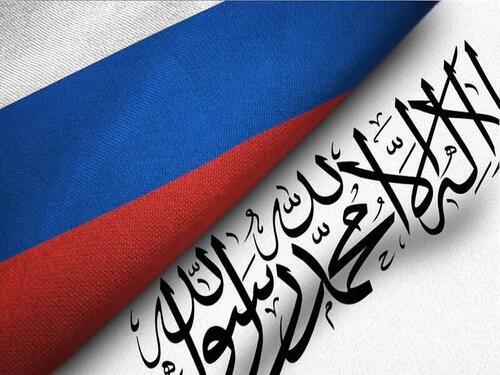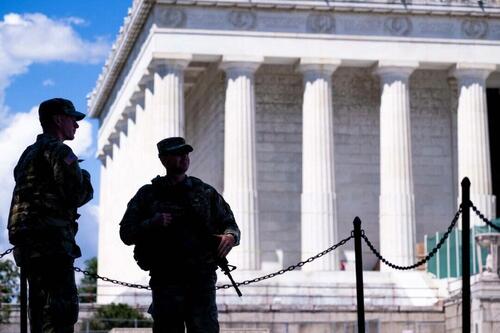
Russia’s Formal Recognition Of The Taliban Comes At A Crucial Time For The Broader Region
Authored by Andrew Korybko via Substack,
Russia became the first country to formally recognize the Taliban as the legitimate government of Afghanistan earlier this month.

This development comes at a crucial time for the region: Trump wants to return US forces to Afghanistan’s Bagram Airbase; there are newfound concerns about the North-South Transport Corridor’s (NSTC) viability after the recent Iranian-Israeli War; and Turkiye is making a powerplay to expand its influence into Central Asia.
Here are three background briefings:
* 16 May: “Trump’s Desired Return To Bagram Airbase Could Reshape South Asian Geopolitics”
* 18 June: “Protracted Instability In Iran Could Adversely Affect India’s Strategic Interests”
* 2 July: “Why’d Erdogan Decide To Expand Turkiye’s Sphere Of Influence Eastwards?”
Correspondingly, the direct consequences of this latest development aim to: bolster the Taliban’s resilience to American pressure to once again host US forces; assist in the construction of Kabul’s portion of the Pakistan-Afghanistan-Uzbekistan (PAKAFUZ) railway and/or make a bid for control over it; and rely more upon PAKAFUZ as a complement or even alternative to the NSTC with the tangential benefit of naturally expanding economic influence in Central Asia so as to gently counterbalance Turkiye’s.
It’s here where the economic drivers of this diplomatic decision come into play as detailed below:
* 19 May 2024: “Analyzing The Strategic Importance Of Russia’s Reportedly Planned Afghan Oil Hub”
* 28 May 2024: “Russia Is Preparing To Strategically Partner With The Taliban”
* 27 November 2024: “Russia’s Grand Geo-Economic Plan A Step Closer In Afghanistan”
The gist is that the expansion of Russian economic influence in Afghanistan, the prerequisite of which is formal recognition of the Taliban as that country’s legitimate government, will enable Moscow to pioneer energy and real-sector connectivity with Pakistan’s promising emerging market via Central Asia.
For that to happen, however, Afghan-Pakistani tensions must first abate and Afghan-emanating terrorist threats to the region must be neutralized or at least contained. Here are some briefings about that:
* 16 June 2023: “Russia’s Afghan Point Man Hinted At The Possibility Of Military-Technical Ties With The Taliban”
* 1 September 2024: “The CIA Isn’t Responsible For The Upsurge Of Terrorism In Pakistan’s Balochistan Region”
* 12 February 2025: “Russia Has A Better Chance Of Mediating Afghan-Pakistani Tensions Than China Does”
All in all, the economic, security, diplomatic, and ultimately strategic opportunities unlocked by Russia’s formal recognition of the Taliban will turbocharge its influence in the broader region, which couldn’t have come at a better time given concerns about the NSTC’s viability and impending Turkish-US inroads. The timing of this development is coincidental, but it nevertheless comes at a crucial time for the broader region, thus strengthening Russia’s stakeholder role and increasing its ability to shape events.
Tyler Durden
Wed, 07/09/2025 – 23:50


















